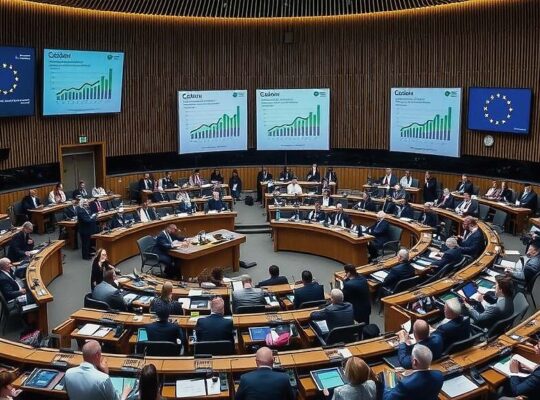Criticism mounts against a proposal to cap rental costs for citizens receiving welfare payments, put forward by CDU leader Friedrich Merz. The suggestion, aimed at managing expenditures within the welfare system, has been widely condemned by various organizations and experts as impractical and potentially detrimental.
Timon Dzienus, spokesperson for the Green Party’s parliamentary group on labor and social affairs, characterized the proposal as “unsocial and wrong” asserting its failure to address the underlying issue. He warned that further restricting allowances for housing costs could push vulnerable families into homelessness, a situation already faced by many struggling to afford rent.
Verena Bentele, President of the VdK (Association for Social Law), echoed this sentiment, highlighting the disconnect from current market realities. She emphasized that even social courts frequently acknowledge that welfare offices (Jobcenter) are struggling to keep pace with actual rental prices. The VdK estimates the upper limit Jobcenters currently provide for cold rent in cities like Berlin for a family of four is around €713.70, a sum deemed insufficient for securing adequate housing.
Marcel Fratzscher, President of the German Institute for Economic Research (DIW), also questioned the proposal’s efficacy. He stated that the arguments presented fail to grasp the core problem and are more likely to cause harm than benefit. Efforts to relocate citizens receiving welfare payments to cheaper housing would generate significant bureaucratic hurdles and likely increase costs in the short term.
The Institute of the German Economy (IW), an organization closely linked to business interests, expressed similar skepticism. Ralph Henger, an IW economist, argued that while the proposals might appear sensible at first glance, they are unlikely to significantly reduce the burden on social welfare funds. He pointed out that local authorities already frequently regulate rent levels, making a nationwide policy shift difficult. Tightening rules in areas with strained housing markets would likely prove unenforceable.
Elke Ronneberger, Deputy Chair for Social Policy at Diakonie Deutschland, urged the government to clearly outline how any policy changes could be implemented legally. She warned that failure to address the issue would risk widespread homelessness and argued that making housing more affordable and stable would ultimately reduce the costs associated with housing allowances within the welfare system.












